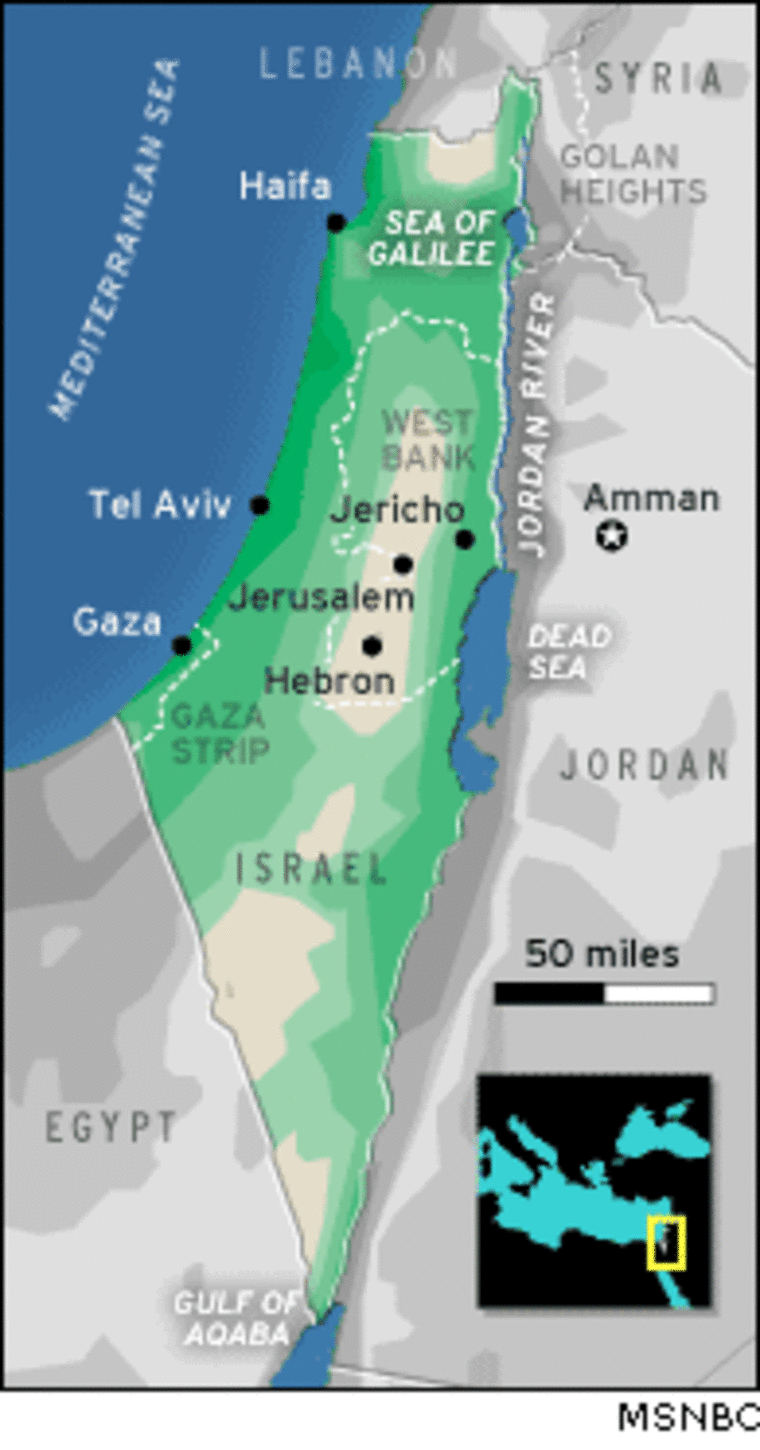A Lebanese guerrilla leader to be released in a large-scale prisoner swap this week accused Israel of mistreating prisoners as he made a rare court appearance Tuesday in a civil suit he brought against the government.
Mustafa Dirani, who was seized by Israeli troops from his home in south Lebanon in 1994, seeks $1.3 million in damages, saying he was sexually abused and raped by interrogators.
Dirani and another guerrilla chief, Abdel Karim Obeid, were kidnapped as bargaining chips for Ron Arad, an Israeli airman shot down over Lebanon in 1986.
Dirani held Arad in the first two years, and reportedly sold the airman to Iran in 1988, a claim he denied Tuesday.
“It’s a lie that I sent him (Arad) to Iran,” Dirani, wearing a brown prison uniform, said as he waited for the proceedings to begin. “What I did with Arad was humane, but Israel didn’t understand that. ... Israel is the one that tortures prisoners, not us.”
The Israeli government had no immediate comment on Dirani’s accusations, but an attorney for the state was expected to respond in an afternoon court session.

Israeli and international human rights groups say Israel has routinely mistreated Arab security detainees during interrogation by depriving them of sleep, tying them up in painful positions and forcing them to wear hoods on their heads.
In 1999, Israel’s Supreme Court banned the blanket use of such practices, and said they could only be authorized in specific. Human rights activists said that following the ruling, abuse fell off, but has become more frequent during the past three yeas of Israeli-Palestinian fighting. Charges of sexual abuse have been rare.
In the suit, Dirani claims he was beaten, violently shaken, deprived of sleep, raped and sodomized by an interrogator from Israel’s Shin Bet security service.
In all, 436 Palestinian and Arab prisoners are to be freed on Thursday in exchange for an Israeli businessman and the bodies of three Israeli soldiers — all kidnapped by the Lebanese guerrilla group Hezbollah in October 2000.
Among those to be released will be 400 Palestinians, 35 from Arab countries and a German convicted of spying for Hezbollah. None of the Palestinians slated for release were convicted of wounding or killing Israelis, prison officials said.
The Arab prisoners and the German were to be moved to a prison in central Israel later Tuesday, and will be flown to Germany on Thursday. The Palestinians will be released into the West Bank and Gaza Strip. Israel will also hand over the bodies of 59 Lebanese militants killed in clashes with Israeli troops.
On Tuesday, Israeli prison officials released a list of names of prisoners slated for release. The list included 371 Palestinians convicted in Israeli military courts, 60 Palestinians held without trial or charges, as well as 30 Arab prisoners and a German man convicted of spying for Hezbollah.
The list included more Palestinians than would eventually be freed, in case some of the releases were blocked by court challenges, officials said.
Of the 371 convicted Palestinians, more than two-thirds were to have been released in 2004, for offenses ranging from carrying out shooting attacks without injury, throwing firebombs, dealing in weapons and aiding fugitives. In a few cases, up to three years were cut from sentences.
Issa Karake, head of the Palestinian prisoners’ association, said he was disappointed because prisoners serving long sentences were not included.
“I look at this like a routine release,” said Karake, noting that Israel in the past has freed prisoners convicted of non-violent offenses on the occasion of Muslim holidays or as part of peace talks.
The Israeli public remained split over the lopsided exchange, with many feeling the deal would boost Hezbollah’s status in the region and reward its tactic of kidnapping Israelis to secure release for its fighters.
The swap sends the message “it pays to strike at Israel, whether through kidnappings, terror attacks or war,” the daily Haaretz said in an editorial Monday.
A poll in the daily Maariv showed 44 percent of Israelis support the deal and 43 percent oppose it. The poll, of 600 people, quoted a margin of error of four percentage points.
“There is no doubt that this is a difficult decision, but it was a necessary and correct decision,” Foreign Minister Silvan Shalom said.
The swap, announced late Saturday, came after lengthy German-mediated negotiations.
Following Thursday’s exchange, the sides are to open a second round of talks to obtain information on Arad.
Shalom said he asked the German government to use its influence with Iran to obtain more information on Arad, who has not been heard from in more than a decade.
Israel has said that if it receives detailed information on Arad’s fate, it will release Lebanese militant Samir Kantar, who has been held in an Israeli jail since 1979 for killing three Israelis.